

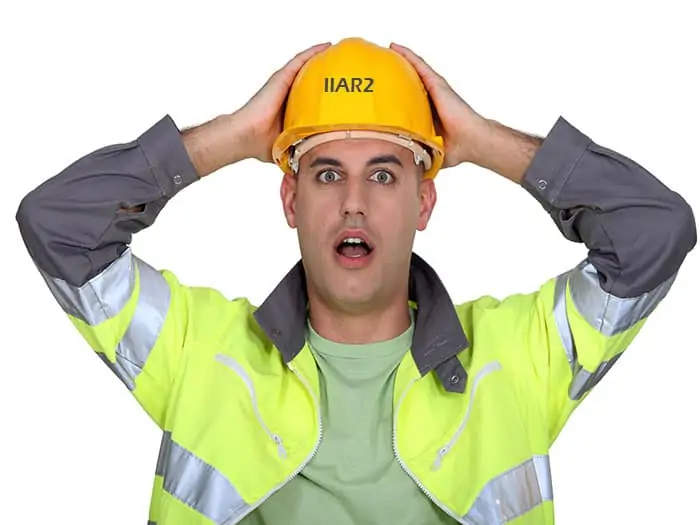
Most everyone is familiar with IIAR2, the American National Standard for Safe Design of Closed-Circuit Ammonia Refrigeration Systems. They will refer to it as the Recognized and Generally Accepted Good Engineering Practice (RAGAGEP) for our industry.
People often forget that IIAR2 is merely the RAGAGEP for the design of ammonia refrigeration systems, but not the installation. IIAR4-2020 is the current RAGAGEP for the installation of ammonia refrigeration systems. If we look through IIAR4, we find that it does, in fact, prohibit the practice of using sheet metal screws when installing insulation.
Section 8.1.11 states, “Screws, rivets, or any other jacket securement device that could pierce the underlying vapor retarder shall not be used. Only bands and seals shall be used to secure the jacketing.”
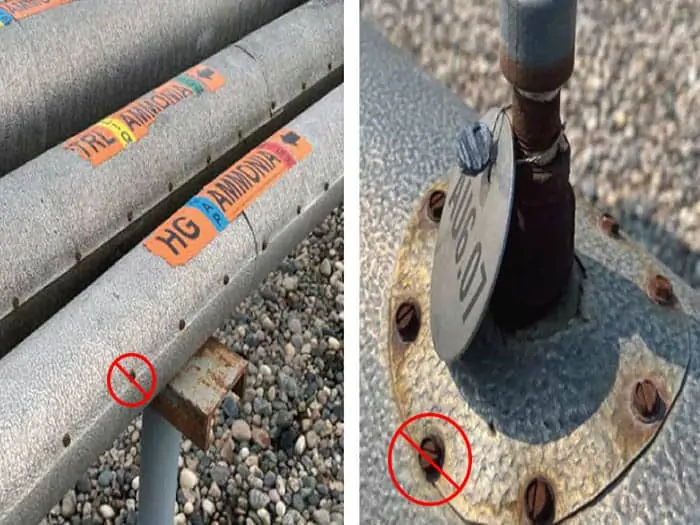
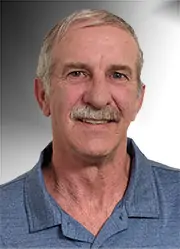
Meet RETA Authorized Instructor (RAI) Daryl Davis. Davis joins the SCS Tracer Environmental training team providing ammonia refrigeration safety, Risk Management Plans, and Process Safety Management certified training.
This SCS team offers comprehensive programs including Ammonia Refrigeration Operator Classes, RETA Certification Review Classes, PSM/RMP & General Duty Clause Safety & Compliance Classes for Ammonia Refrigeration Facilities, Continuing Education, & Custom Training Classes.
SCS’s RAI’s have over 56 combined years of industrial refrigeration expertise. Our trainers use an online delivery system with a live instructor, or on-site, in-person classes, to ensure you continue training for Process Safety Management & Risk Management Program compliance. Hands-on site training can now take place under even noisy plant conditions using high-tech headsets.
RAI – RETA Authorized Instructors have certifications in their mastery teaching advanced refrigeration system concepts and operations at a level that qualifies them to assist CARO, CIRO, CRST, and CRES candidates with their preparations and activities required to earn RETA credentials.
Get the latest in RETA certified training news and classes. The Refrigerating Engineers and Technicians Association (RETA) is the most recognized organization in the U.S. dedicated to the professional development of industrial refrigeration operators and technicians.
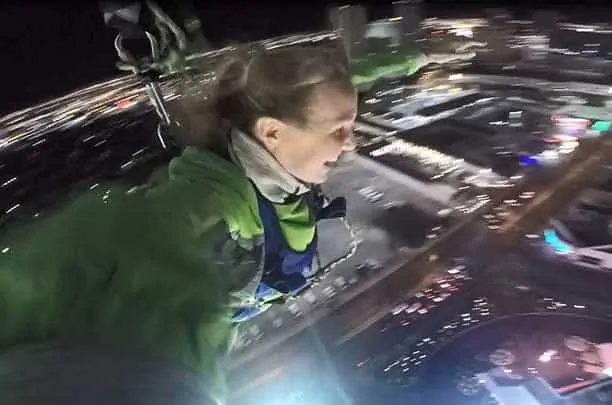
Bill Lape, Project Director with SCS Tracer, will give a presentation on the effects of the Chemical Facility Anti-Terrorism Standards (CFATS) regulation on the ammonia refrigeration industry. Bill sits on the RETA Board of Directors.
The Chemical Facility Anti-Terrorism Standard, or CFATS, is one of the most misunderstood regulations that may govern ammonia refrigeration facilities. Bill’s presentation will cover Chemical-terrorism Vulnerability Information and the requirements for protecting this information. Next, he’ll review the basic submission of data to the Department of Homeland Security, otherwise known as a Top Screen. Then cover the specific levels or tiers associated with CFATS, including facility tier assignments and the requirements for each tier. Finally, Bill covers the update requirements and the communication of updates.
In addition, Bill will provide some general observations from across the ammonia refrigeration industry identifying typical tier levels for facilities with ammonia refrigeration systems and illustrating examples of items that typically are included in site security plans for these facilities.
To better serve the unique needs of our clients, we employ experienced staff with backgrounds in oil, petrochemical/chemical industries, aerospace, and manufacturing companies. Tracer’s service professionals are strategically located across the nation and perform the calibration in a wide range of ammonia refrigeration industries such as dairy, food, and beverages; ice arenas and ice manufacturing; cold storage warehouses; and for facilities using ammonia for metal/tooling heat treating, and fossil fuel plants with NOx systems.
As an added service, we can provide consultation on your ammonia detection system based on the IIAR 2-2014 Standard and Recognized and Generally Accepted Good Engineering Practices (RAGAGEP). SCS also offers operator, custom, PSM/RMP training programs.
That’s Bill Lape in a word. Bill is a Certified Industrial Refrigeration Operator, a Certified Refrigeration Service Technician, and a member of the National Board of Directors of the Refrigerating Engineers and Technicians Association – RETA. He is also a certified Process Safety Management Professional through the University of Wisconsin.
PSM SAFETY & COMPLIANCE CONSIDERATIONS IN THE AGE OF PANDEMICS PSM safety programs and training remain a top priority during the pandemic. While online training is not a complete substitute for live, face-to-face PSM training and instruction, in the age of pandemics, it is a viable option. What to look for in PSM – ammonia refrigeration system safety training?
EPIC FAIL: ICE BUILD UP When developing your inspections for your system’s mechanical integrity program, always be mindful of the potential consequences of ice buildup, particularly if it continues for an extended period of time.
Providing a safe work environment is always essential, but never more so than now. Meeting PSM/RMP compliance deadlines, providing ammonia refrigeration operator training, and maintaining critical safety systems are key components in a safe work environment for facility employees.
Safety systems, such as ammonia leak detection systems, must remain operational as required under the following regulatory criteria:
• OSHA 29 CFR 5189, Process Safety Management (PSM) Section (j)(2)(C) Mechanical Integrity
• EPA’s 40 CFR Part 68, Risk Management Program (RMP) Part 68.73
• EPA General Duty Clause
• RAGAGEP – IIAR Standard 6
These criteria require companies to comply with the manufacturer’s recommendations for maintenance and calibration of ammonia detection systems. Calibrating ammonia sensors on a frequency determined in these same recommendations keeps your business compliant. We all know that compliance is non-negotiable as the ammonia detection system is a life-safety device.
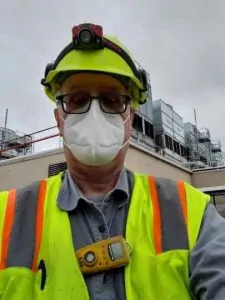
Dedicating itself to providing a variety of online training and virtual meetings, the SCS Tracer Environmental team ensures your systems meet all regulatory obligations. When site visits are necessary; our teams and your facility members use a CDC-based safety protocol meeting state and local requirements, and facility requirements.
For assistance with ammonia sensor calibrations, please contact Mark Carlyle.
Congratulations to Jeanne Lemaster for recently earning her Masters and Ph.D. in NanoEngineering from the University of California, San Diego. While pursuing her doctorate, Jeanne worked part-time as a Project Professional on the Risk Management team with the specialty group SCS Tracer Environmental and has since returned to full time.
Jeanne has been a part of SCS’s team for over seven years. Dr. Lemaster is responsible for the documentation of Process Safety Management Programs (PSM) / Risk Management Programs (RMP) / California Accidental Release Prevention Programs (CalARP) projects for regulated facilities using hazardous materials. Her work includes preparing the program documentation for compliance with the PSM/RMP/CalARP regulations, leading Process Hazard Analyses (PHA) studies, completing Hazard Assessments, providing CalARP implementation training, developing Piping and Instrumentation Diagrams, conducting Seismic Assessments, and producing technical reports for clients.
Jeanne is affiliated with the American Institute of Chemical Engineers (AICHE), Refrigerating Engineers and Technicians Association (RETA), and the American Chemical Society (ACS).
Nanoengineers like Jeanne, provide scientific and technical expertise to scientists, engineers, technologists, technicians, or others, using their knowledge of chemical, analytical, and biological processes as applied to micro and nanoscale systems. Nanosystems Engineers also design nanosystems with components such as nanocatalysts or nanofiltration devices to clean specific pollutants from hazardous waste sites. They also design nano-enabled products with reduced toxicity, increased durability, or improved energy efficiency.
SCS Tracer Environmental has a diverse staff of instructors who provide practical, cost-effective ammonia refrigeration training and certification review courses. Training can be provided on-site, at our new training classroom in Oakdale, Minnesota, or at one of our nationwide sessions. Our training programs incorporate RETA, IIAR, manufacturers, field materials, facility-specific standard operating procedures, and/or piping and instrumentation diagrams.
Ammonia Refrigeration Operator Training Programs use the applicable RETA Industrial Refrigeration (IR) 1 & 2 manuals, which participants keep at the conclusion of the classes. These intensive four-day classes are provided in locations across the nation (convenient for attendees to participate locally) or in our new Minnesota classroom.
Operator I: This course is based on the materials in RETA IR-1 Course and is designed as an entry-level training program for a refrigeration operator, manager, and/or safety personnel with limited refrigeration training, or experienced operators who have never received the basic fundamentals of refrigeration principles. Operator I training is also offered in Spanish.
Operator II: This course is based on the material in RETA IR-2 Course and is designed for a refrigeration operator, manager, and/or safety personnel who have successfully completed the Operator I class and have a desire to further their knowledge in industrial refrigeration systems and principles using ammonia as a refrigerant.
PSM/RMP Introduction Training Class uses ammonia refrigeration-focused material specific to your PSM/RMP program and facility, RETA, IIAR, manufacturers, and field materials, as well as facility-specific standard operating procedures. We highlight the responsibilities of the various PSM/RMP Team Members that may include, but not be limited to, maintenance, safety, management, environmental, and/or facilities personnel:
PSM/RMP Advanced Training Class is geared for experienced PSM Program Managers, Plant Managers, ammonia refrigeration facility compliance personnel, and safety-EHS staff who want a detailed review of the more complex regulatory requirements included in the PSM and RMP regulations. The class focuses on the complex details of the following elements: Process Safety Information (RAGAGEP), Standard Operating Procedures, Management of Change (Project planning through Pre Startup Safety Review (PSSR)), and Mechanical Integrity.
RETA CARO/CIRO Review Classes are intensive training designed for operators who are pursuing their RETA CARO or CIRO certification. Each course includes a review of the pertinent materials. During Day 2, participants receive a voucher to take the RETA Practice Test, a $60 value. Our instructors use the practice test results to customize the curriculum on Day 3 to focus on the more difficult concepts.
SCS Engineers is pleased to announce the opening of our newest location in Oakdale, Minnesota. Located approximately 15 miles from the Minneapolis-Saint Paul International Airport, this SCS office also boasts a training facility dedicated to specialized compliance training related to risk and process safety-based EPA and OSHA regulations. The new location is:
SCS Engineers
7300 Hudson Boulevard North, Suite 135
Oakdale, MN 55128
1 (800) 767-4727
SCS Tracer Environmental, a specialty practice of SCS Engineers, will continue to offer custom onsite training and nationwide training sessions, in addition to ammonia refrigeration operator training, CIRO review classes, CARO review classes, and Process Safety Management and Risk Management Plan (PSM/RMP) training in our new classroom.
To better serve the unique needs of their clients, SCS employs experienced staff with backgrounds in oil, petrochemical/chemical industries, aerospace, and manufacturing companies. Tracer’s service professionals are strategically located across the nation to meet the environmental needs in a wide range of industries using ammonia refrigeration such as dairy, food, and beverages; ice arenas and ice manufacturing; cold storage warehouses; and for facilities using ammonia for metal/tooling heat treating, and fossil fuel plants with NOx systems.
As an added service, SCS provides consultation on ammonia detection systems based on the IIAR 2-2014 Standard and Recognized and Generally Accepted Good Engineering Practices (RAGAGEP).
Click here for more details regarding training.
Bill Lape discusses the most frequently asked questions about designing a training program that is part of your facility’s PSM and RMP programs and provides a defensible position during inspections while ensuring that your facility operators and maintainers perform their jobs safely.
Bill tackles all your questions in this article. Set-PSM-RMP-Hut-Hut
SCS Engineers has just added over 40 new NH3 refrigeration training sessions to our 2019 schedule. These intensive training includes:
Contact us for on-site SOP and specific Refrigeration Training for operators customized for your system/facility. We also provide PSM/RMP and Ammonia Awareness training. Contact us today at or visit our website.